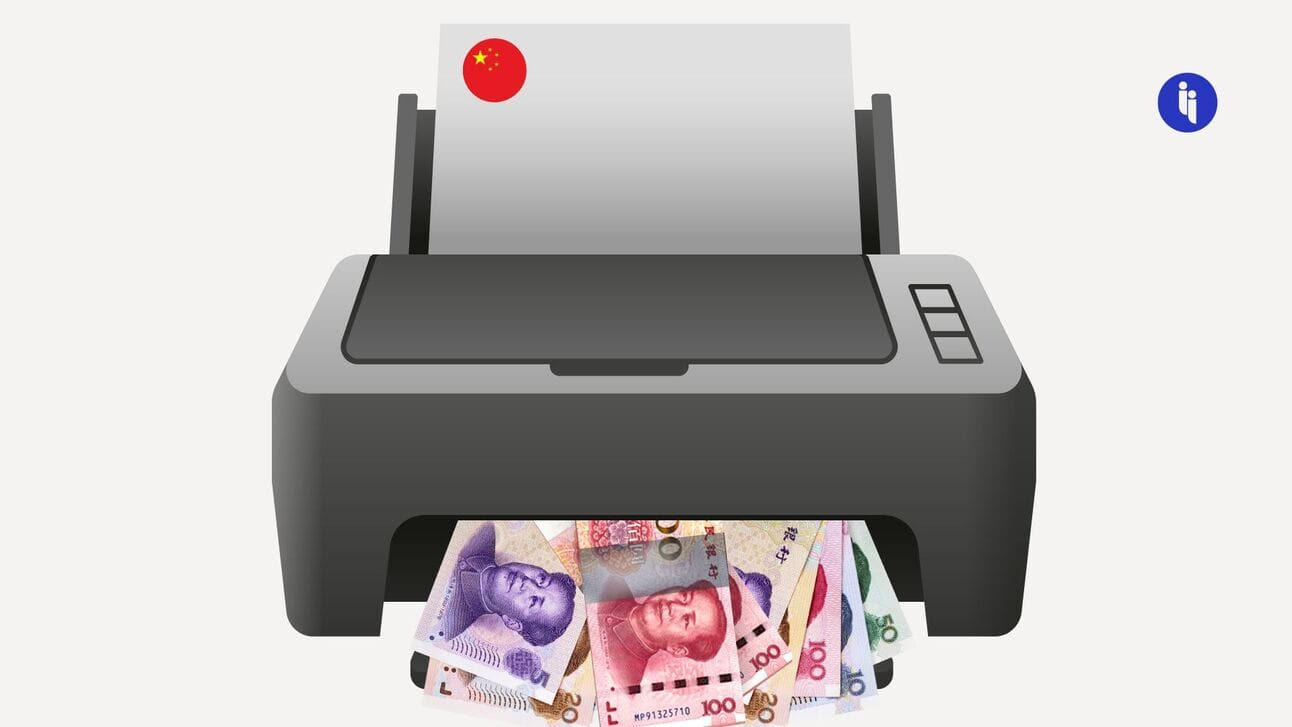China’s Ministry of Finance confirmed yesterday (Monday) China’s latest move to boost the world’s second-largest economy: the sale of $140B in ultra-long bonds. It delivers on a commitment Premier Li Qiang made in March.
And the news comes after another batch of disappointing economic numbers:
- China’s credit has shrunk for the first time since 2005
- Producer inflation has declined for the 19th straight month
- Foreign investment into China dropped 56% on the year in Q1, and
- There are doubts around the strength of recent import and export figures
So how will bonds help?
Stay on top of your world from inside your inbox.
Subscribe for free today and receive way much more insights.
Trusted by 114,000+ subscribers
No spam. No noise. Unsubscribe any time.
Selling government bonds can only mean one thing: Beijing is planning on making it rain again – ie, it’s raising debt to fund more government spending in an attempt to jumpstart the economy.
But why ultra-long bonds?
China has only ever issued these kinds of bonds three times before: to recapitalise its big state banks after the 1998 Asian Financial Crisis; to finance a new sovereign wealth fund in 2007; and to fund its Covid response in 2020.
This time around, there’s no single ‘shock’ – it’s more about boosting central stimulus in a way that a) takes pressure off indebted local governments, b) keeps the spending ‘off budget’, and c) aligns its longer-term debt repayments with the kinds of longer-term spending Beijing has in mind (“landmark projects”).
But why now?
In addition to the tough economic numbers we flagged above, there are a few other numbers weighing on Beijing’s mind:
- 5%: That’s the 2024 growth target China’s leaders set back in March, and reaching it might now be tougher because…
- 100%: That’s the new tariff rate President Biden is expected to slap on China-made EVs and other products today (Tuesday), which is on top of…
- Three: That’s how many big waves of restrictions the US has already placed on chip exports to China since late 2022 in an effort to curb its access to advanced tech, all while Beijing’s own clock is ticking because…
- Nine: That’s how many months Xi Jinping will be late when he finally convenes the Communist Party’s third plenum in Beijing this July, with a promised focus on addressing China’s various economic challenges.
So all this to say the pressure is rising for China, both externally and internally.
And in that context, it’s been interesting to see China’s proposed solutions emerging. Some (like February’s rate cut or even the above bond sale) are fairly standard.
But others aren’t – whether it’s the reports of indebted local governments exploring ways to record data as assets; or the plans to turn Hainan, a tropical island the size of Belgium, into the world’s biggest duty-free zone.
However, most controversial (at least for the West) is still China’s plan to double down on, well, old plans: boosting exports. That’s controversial because the West is becoming more reluctant to accept all those exports, particularly where they’re under-priced (subsidies), over-produced, and risk wiping out local jobs.
So after years of uncertainty, yes, we’re getting a picture of Beijing’s plan: but it’s not all that new, not all that welcome (for some), and it may not all work.
INTRIGUE’S TAKE
Raising debt to boost stimulus is a fine idea, but it depends a lot on how you spend the money. And Premier Li Qiang seemed to acknowledge that fact when he chaired a virtual meeting yesterday, urging officials to put this new cash to good use.
But after decades of ploughing a massive 40% of its GDP into investment, China’s returns are now diminishing, and its options are now shrinking.
Also worth noting:
- China’s ailing property sector accounts for up to 20% of its GDP.
- It’s not entirely clear how big China’s local government debt burden is, though estimates are as high as $10T – that’s equivalent to the GDP of Germany and Japan (combined).









